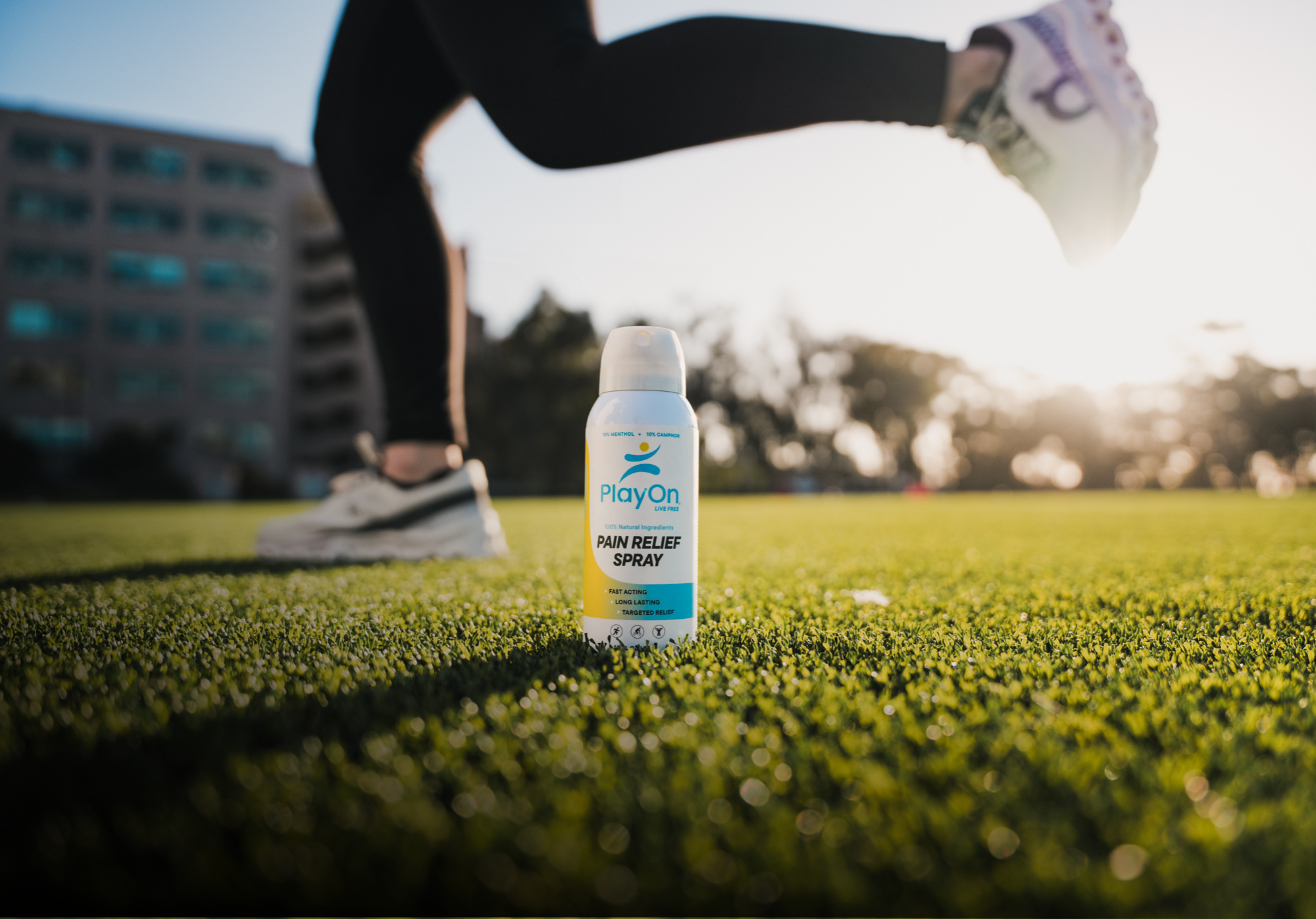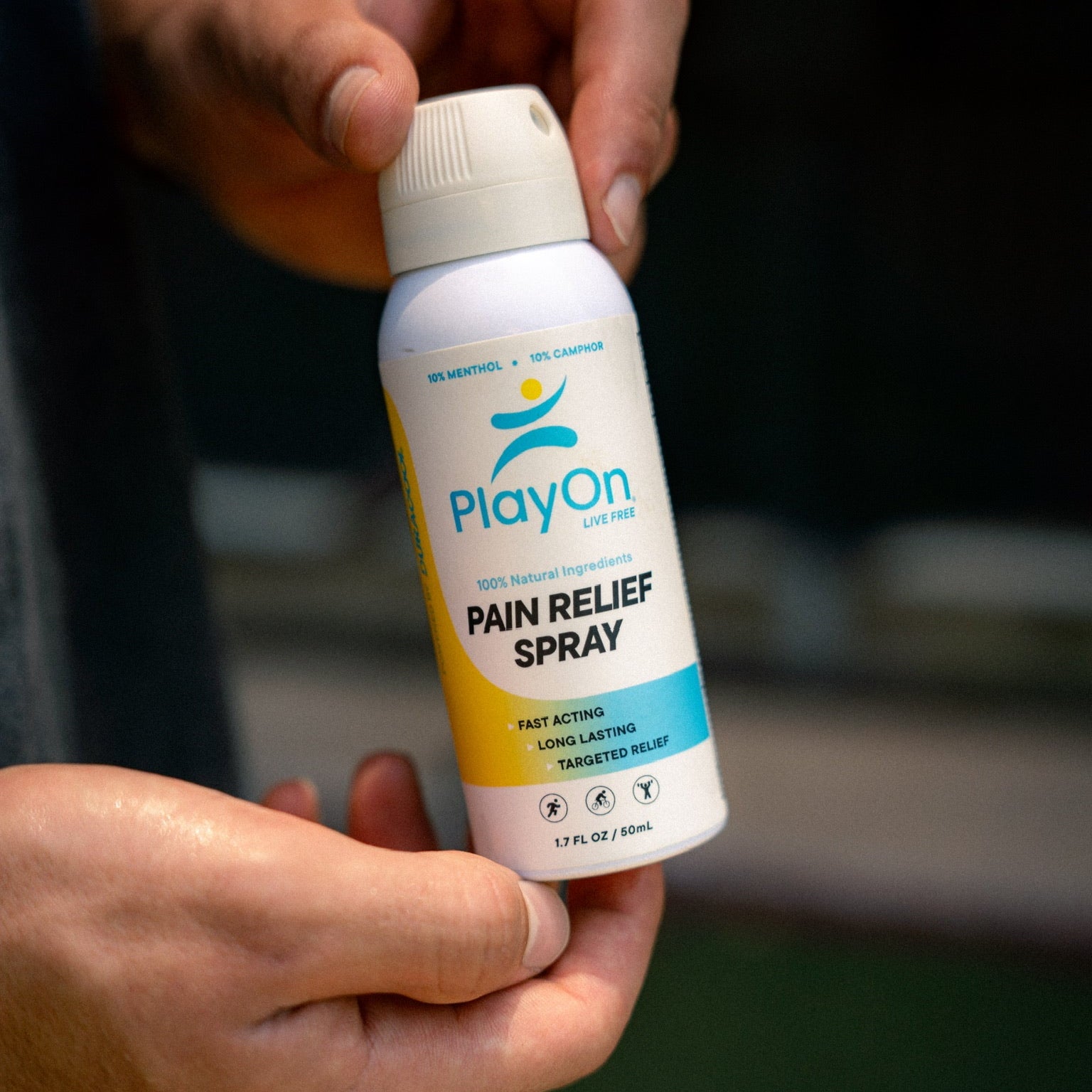PlayOn Relief's Farm Grown Arnica
- American-grown, whole-flower arnica, highly concentrated into a fast-absorbing topical tincture.
- Formulated for site-specific delivery with DuraCool film technology to sustain local exposure.
- Intended to support reducing inflammation, visible bruising, local swelling, and improving comfort following minor musculoskeletal trauma or exertion.
Why Arnica and PlayOn matter
After strenuous activity or repetitive strain, localized pain, swelling, and bruising are the things that slow return to function. PlayOn’s arnica is specially selected and formulated to address those visible and sensory signs directly at the site of need.
Targeted Application
Topical delivery lets you apply relief precisely where it is needed without exposing the entire body.
Predictable Performance
High concentration and standardized extraction support reproducible effects across lots.
A Natural Complement to Recovery
Arnica’s botanical profile provides multimodal support of inflammatory and microvascular pathways implicated in inflammation, bruising, and acute local edema.
Careful consideration has gone into how we select our arnica and transform it for its wonderful effects in PlayOn. We ensure that we 1) always use the whole plant, and 2) create a highly concentrated tincture
Why a highly concentrated whole-flower tincture matters
Concentration — pharmacology and formulation rationale
A concentrated tincture of arnica is a critical formulation decision with direct implications for the efficacy and quality of our product:
Dose dependency. Many of arnica’s bioactive effects (anti-inflammatory and antioxidant) are concentration-dependent. Insufficient levels delivered to your tissues yield inconsistent outcomes; concentrated extracts raise the probability that active compounds reach and affect local targets (muscle, fascia, tendons, ligaments).
Practical implication: high concentration = formulated for reproducible local delivery and results
Whole-flower extraction — phytochemical and pharmacognostic rationale
Using the whole plant (rather than selectively using petals, leaves, or stems) is an intentional choice to preserve the plant’s authentic phytochemical ensemble:
- Full phytochemical spectrum. Flower heads contain sesquiterpene lactones (helenalin family), flavonoids, phenolic acids, volatile fractions and minor constituents—each contributing to biological activity. Whole-plant extraction (vs. petal only) retains all of the active compounds concentrated more densely in different portions of the plant.
- Reduced variability. Sourcing and processing whole flowers from a single farm and chemotype improves traceability and reduces lot variability versus blending different plant parts from multiple sources.
Practical implication #1: whole-flower = designed for broader, authentic activity and more consistent botanical identity.
Practical Implication #2: Arnica extracts that do not use the whole plant could be very low in key physiologically active compounds, missing out on the benefits of the plant.
The science — mechanistic summary (technical)
This section is for the real biochem buffs – skip if you're not interested!
The biological activity of Arnica montana derives from multiple classes of phytochemicals acting on inflammatory, oxidative, and microvascular pathways relevant to acute tissue injury, ecchymosis (bruising), and edema (swelling).
Principal phytochemical classes
- Sesquiterpene lactones (e.g., helenalin-class): primary modulators of inflammatory transcriptional activity.
- Flavonoids & phenolic acids: antioxidant and microvascular-stabilizing effects.
- Minor volatile and lipid constituents: potential modulators of membrane interactions and topical bioavailability.
Key mechanistic themes supported by preclinical and clinical literature
NF-κB pathway modulation.
Helenalin-class sesquiterpene lactones inhibit NF-κB activation (by modifying p65 and/or stabilizing NF-κB/IκB complexes), reducing transcription of pro-inflammatory mediators such as COX-2, IL-1β, IL-6 and TNF-α.
Reduction of pro-inflammatory mediators.
Topical application of arnica preparations has been associated with lowered levels of TNF-α, IL-6, MCP-1, COX-2, and iNOS-derived nitric oxide in experimental models and selected clinical contexts.
Mast cell and lymphatic modulation
Animal studies report diminished mast cell degranulation and increased lymphatic vessel diameter after topical arnica, an effect that plausibly accelerates interstitial clearance and reduces visible swelling.
Antioxidant and membrane stabilization.
Flavonoids and phenolic acids provide ROS scavenging and membrane-stabilizing actions that mitigate secondary tissue injury and inflammatory amplification.



